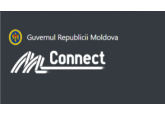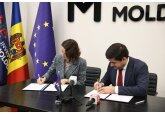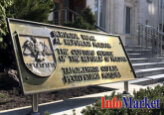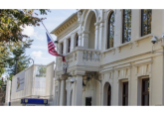
A law introducing limits on cash payments will come into force in Moldova on April 1
According to the Ministry of Finance, the Law on Cash Payments provides for a limit on the cost of cash transactions between two individuals to 100 average salaries in the economy (approximately 1.6 million lei, or 80 thousand euros in 2025) for real estate transactions, and to 50 average monthly salaries in the economy for car transactions. Any transaction exceeding these values will have to be carried out by bank transfer, electronic means. According to the Ministry of Finance, more than 1,000 taxpayers took part in a round of discussions related to cash payments, which was held by the Ministry of Finance jointly with the Mission of High Advisors of the European Union, the State Tax Service and the Monitorul Fiscal FISC.md publication. Minister of Finance Victoria Belous, EU High Counsellor for Customs and Tax Policy Rosario de Blasio, Director of the State Tax Service Olga Golban and Secretary of State of the Ministry of Finance Cristina Ixari stressed the importance of transparency and correct information to taxpayers regarding legislative changes, reiterating the call for continued active communication between government agencies and the business community. Victoria Belous stressed the importance of clear and applicable legislation that will provide certainty to taxpayers. “It is very important that all participants understand the principles and objectives of the new legislation, especially as it relates to individuals. The Ministry of Finance wants to ensure a transparent and predictable budget and tax structure, and for this, dialogue and cooperation are fundamental,” she said. Representatives of the Ministry of Finance and the State Tax Service touched upon topics related to monetary settlements, as well as international restrictive measures that will be introduced after the rules come into force. The speakers were joined by the EU High Commissioner for Prevention and Combating Money Laundering, Recovery and Management of Criminal Assets Žydrūnas Bartkus and the EU High Commissioner for Financial Services Nicolae Grigore, who presented the EU practice in this area and the benefits arising from the implementation of the concept. The event was held in a hybrid format. The participants highly appreciated the initiative of the organizers and actively engaged in discussions and debates on the topics of the agenda. // 30.01.2025 — InfoMarket







